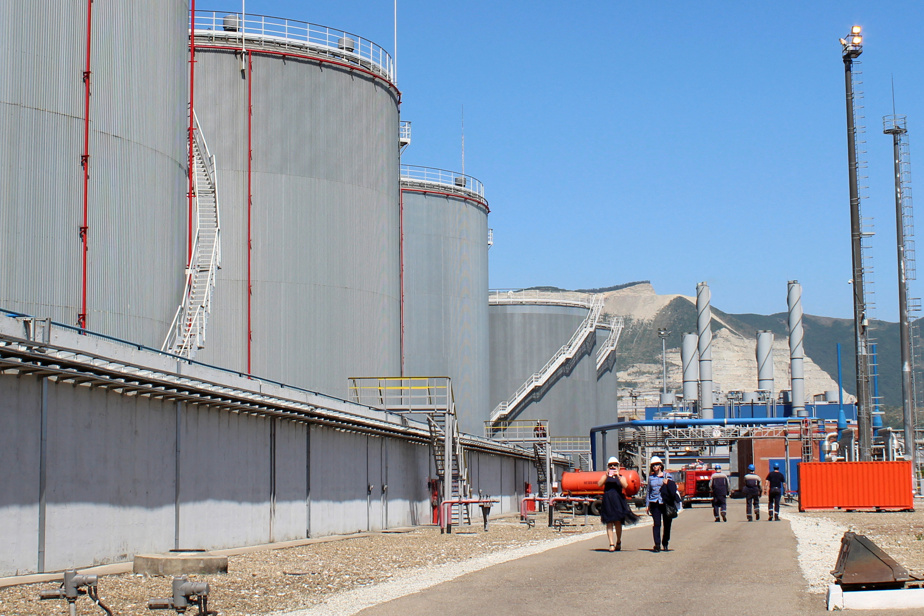(New York) Oil prices ended down on Thursday, despite the announcement of new production cuts by several members of the OPEC alliance, received with caution by the market.
The price of a barrel of Brent from the North Sea for delivery in January fell 0.32%, to close at $82.83.
A barrel of American West Texas Intermediate (WTI) of the same maturity fell further, losing 2.44% to $75.96.
Several members of the Organization of the Petroleum Exporting Countries (OPEC) and the OPEC alliance committed to additional reductions on Thursday “to strengthen the stability and balance of the oil market,” according to a press release.
Following a ministerial meeting, Saudi Arabia renewed, until the end of March, its reduction of one million barrels per day, in force since July. Russia increased it from 300,000 (since September) to 500,000.
By adding six other countries, the new cuts reach 900,000 barrels per day in net.
Rising until then, prices nevertheless fell after the cartel’s communication.
“They have a credibility problem,” commented CFRA’s Stewart Glickman. “We don’t see a united front. They didn’t manage to get everyone lined up. »
“Saudi Arabia aside, OPEC members have traditionally struggled to comply with planned cuts, leading to skepticism about how much cuts will actually be achieved,” added Rob Haworth, of US Bank Asset Management Group.
“The market will have to evaluate the credibility of these voluntary reductions on a case-by-case basis,” according to Stewart Glickman.
Another unfavorable sign for the unity of the alliance, the representative of Angola on the OPEC board of governors, Estevao Pedro, immediately rejected the new quota assigned by the organization to his country.
The cartel set it at 1.11 million barrels per day, less than the 1.28 decided in June.
“We are going to produce above the quota determined by OPEC,” Estevao Pedro told the Bloomberg agency, while denying “disobeying” the alliance.
“The economic slowdown and international trade also limited the potential for price appreciation following these announcements,” underlined Rob Haworth.
“Demand has been above average, but growth is expected to be lower next year,” recalled Stewart Glickman. “A lot will depend on China’s recovery. If China disappoints, it will put OPEC “under pressure to make further massive cuts. »
More marginally, prices also suffered from the announcement of the resumption of loadings of Kazakh crude at the Russian terminal of Novorossiïsk, on the Black Sea, after a storm which hit the region.
